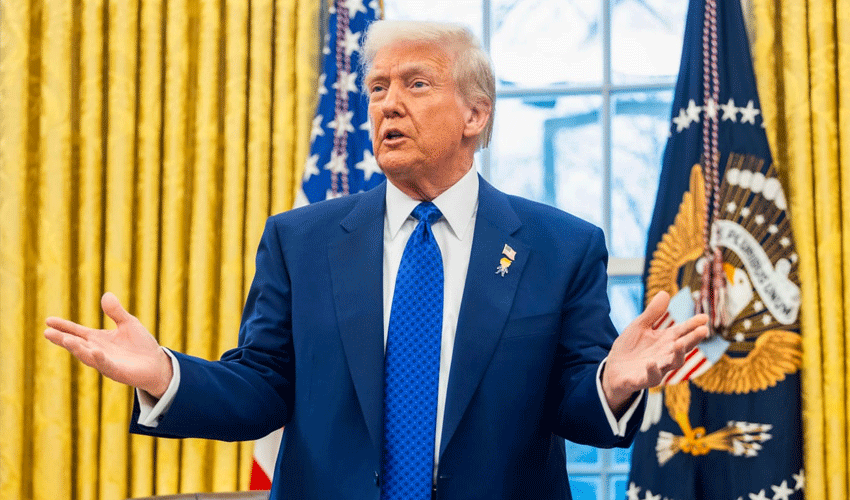President Trump signed an executive order Tuesday that demands voters prove their U.S. citizenship before casting ballots and implements new rules for mail-in voting. This move is likely to face legal challenges and increase political divisions over voting rights.
The order threatens to withhold federal funds from states that don’t comply. Trump stated at the White House, “We’ve got to fix our elections. This country is sick because of fake and bad elections. We’re going to straighten that out.”
This action follows years of Republican efforts to tighten voting laws. Critics argue it will negatively impact minority communities and marginalized individuals.
According to the White House, the order aims to prevent foreign nationals from influencing U.S. elections. For the first time, voters will be required to answer a citizenship question on the federal voting form.
Additionally, the Department of Homeland Security is directed to provide states with access to systems that verify the citizenship or immigration status of those registering to vote. It also allows officials to subpoena voter registration lists to ensure compliance with federal law.
The Republican National Committee (RNC) has already started requesting public records from 48 states and Washington, D.C., to examine how they maintain voter registration lists.
Voting rights activists and civil liberties groups strongly criticized the order, calling it an attempt to suppress voter turnout.
Research by the Brennan Center for Justice shows that approximately 21.3 million eligible U.S. voters, or 9% of the voting population, lack readily available proof of citizenship. Furthermore, around 146 million Americans don’t have passports, which could make compliance difficult.
The order also targets states that allow mail-in ballots postmarked by Election Day to be counted, a practice in 18 states, Puerto Rico, the Virgin Islands, and Washington, D.C.
Legal experts predict numerous lawsuits challenging the order, arguing it could violate the 14th and 15th Amendments, which guarantee equal protection and prohibit racial discrimination in voting.
This move comes as Trump, who continues to claim his 2020 loss to President Biden was due to widespread fraud, prepares for a 2024 rematch.
Despite repeated investigations finding no evidence of significant voter fraud, Trump and his Republican allies continue to claim non-citizens illegally participate in U.S. elections, a claim election officials and experts say is unfounded.
Democrats, who have pushed for expanded mail-in and early voting access, are expected to strongly oppose the order in courts and Congress.



